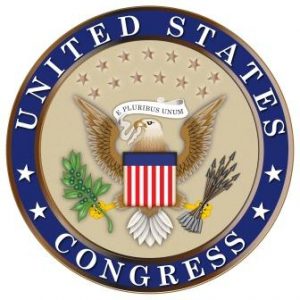 On May 11, 2016, President Obama signed the Defend Trade Secrets Act (“DTSA” or “Act”). The bill was largely uncontroversial (imagine that), passing the Senate by an 87-0 vote and the House by a 410-2 vote. The DTSA is an important piece of legislation. It is so important that we have decided to focus our entire issue of the LWH Newsletter on this new law. In the articles below, we will briefly explore major aspects of the Act, which:
On May 11, 2016, President Obama signed the Defend Trade Secrets Act (“DTSA” or “Act”). The bill was largely uncontroversial (imagine that), passing the Senate by an 87-0 vote and the House by a 410-2 vote. The DTSA is an important piece of legislation. It is so important that we have decided to focus our entire issue of the LWH Newsletter on this new law. In the articles below, we will briefly explore major aspects of the Act, which:
- Establishes a federal cause of action for trade secret misappropriation;
- Provides for ex parte seizure of property under certain circumstances;
- Provides increased damages arising from theft of trade secrets;
- Gives immunity to individuals (i.e., whistle blowers) for disclosures made to federal or state authorities; and
- Requires employers to give notice of the DTSA to their employees, subcontractors and consultants who have signed employment, non-disclosure, and confidentiality agreements.
So, what is a “trade secret?” The Trade Secrets Act (18 U.S.C. § 1832 et. seq.), which is amended by the DTSA, defines it as follows:
All forms and types of financial, business, scientific, technical, economic, or engineering information. . . .if –
(A) the owner thereof has taken reasonable measures to keep such information secret; and (B) the information derives independent economic value, actual or potential, from not being generally known . . . .
18 USC 1839. Note that the Act, like state law, requires trade secret owners to follow best practices in maintaining the confidentiality of the secrets. This is important if you want to avail yourself of the benefits of the DTSA.
The DTSA also adds significant new tools to the intellectual property lawyer’s kit. Perhaps, the most obvious is that it creates a right to sue for misappropriation of trade secrets in federal court. This is significant because remedies under the Act may exceed those provided by state trade secret laws. The DTSA provides for criminal and civil remedies. For civil actions, the Act provides injunctive relief, actual damages, unjust enrichment damages, or reasonable royalties (18 U.S.C. § 1836). The Act also provides double damages and attorneys fees for willful and malicious conduct. Just like copyright litigation, in which litigants may recover attorneys fees, there will be little downside to pursuing trade secret thieves in federal court.
Learn more about the DTSA in following articles.
— Adam G. Garson, Esq.

